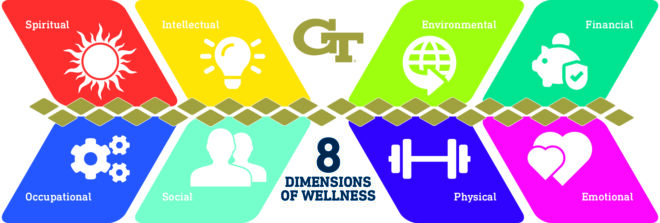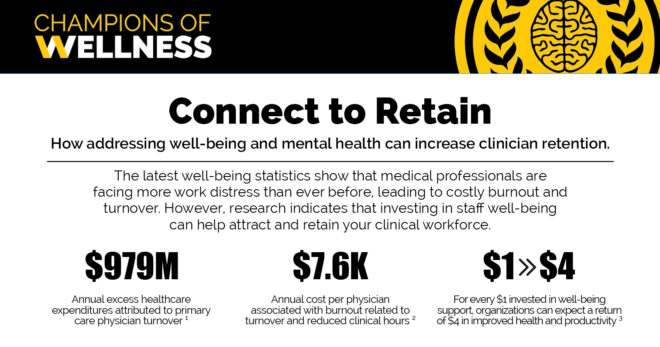Mental Health Tech Innovations: Boosting Wellness
A Mental Health Technician provides critical support in mental healthcare settings. Their role includes monitoring patient behavior and assisting with therapeutic activities.
Mental Health Technicians, or Psychiatric Technicians as they are sometimes known, are vital in helping individuals manage mental health conditions by offering both emotional support and practical assistance. These professionals work closely with a healthcare team, reporting behavioral changes and aiding in the treatment process.
Most often found in hospitals, residential care facilities, and outpatient clinics, they play a pivotal role in the welfare of their patients. Gaining certification as a Mental Health Technician can be a strong starting point for those looking to contribute meaningfully to the field of mental health services. With mental health awareness on the rise, the demand for skilled technicians in cities like Austin, Texas, is growing, presenting opportunities for those with a passion for compassionate care.
Rise Of Tech In Mental Health
Digital tools are quickly becoming key assets in managing mental health. These tools include apps for smartphones and software programs that can monitor moods and stress levels. They provide valuable support outside of traditional therapy sessions.
With easy access to these digital resources, individuals can track their emotional states at any time. This helps them, and their healthcare providers, to see patterns and potential triggers. Care delivery becomes personalized and efficient.
| Technology Type | Benefits |
| Mental Health Apps | Convenient tracking of moods, meditation guidance |
| Online Therapy Platforms | Accessible professional support, anonymity |
| Wearable Devices | Continuous monitoring of physiological data |
Such technological advancements bring mental healthcare into the modern era. They offer strategies to manage symptoms daily. Indeed, the right tech can help provide a more holistic approach to mental well-being. Patients and clinicians both benefit from these innovations.
Wearable Devices And Mental Health Monitoring
Wearable tech like smartwatches are evolving as tools for monitoring mental well-being. These devices track mood changes, stress levels, and even predict anxiety episodes. A user-friendly interface collects data on physical indicators of stress, such as heart rate variability.
For personalised well-being tracking, these smart devices use sophisticated algorithms. They provide actionable insights, enabling individuals to make informed decisions about their mental health.
Different smartwatches have various features for personal mood tracking. Examples include:
- Graphs and charts showing emotional trends
- Alerts for increased stress levels
- Recommendations for breathing exercises and mindfulness activities
This biofeedback helps in creating custom relaxation techniques. Many users report improved self-awareness and better mental health management.
Mobile Apps For Mental Wellness
Therapeutic apps offer support for those with anxiety and depression. Users find relief through guided activities and resources. These platforms provide discreet and immediate access to help. Self-monitoring tools enable tracking of mood and thoughts.
Meditation and mindfulness apps are convenient for on-the-go users. They encourage users to engage in breathing exercises, guided meditations, and relaxation techniques. Users learn to manage stress, improve concentration, and promote emotional health.
| App Feature | Benefit |
|---|---|
| Guided Meditation | Reduces stress, enhances calmness |
| Progress Tracking | Visualizes improvement, motivates users |
| Relaxation Techniques | Helps in managing anxiety levels |
Many apps are free, while some offer premium features. They cater to different needs and preferences.
Virtual Reality Therapy: A New Frontier
Virtual Reality (VR) technology brings incredible promise to mental health therapy. Engaging immersive experiences are being used for treating various phobias. Patients facing fears like heights, flying, or spiders find VR as a safe space for exposure therapy. They slowly face their fears in a controlled virtual environment, which helps reduce anxiety in real-life scenarios.
The positive impact of VR is evident in Post-Traumatic Stress Disorder (PTSD) therapy. Sufferers relive traumatic events in a secure setting, enabling therapists to provide immediate support and interventions. This method is showing promising results in helping individuals process and cope with their trauma. The therapy’s effectiveness in reducing symptoms of PTSD highlights VR’s potential to transform mental health treatments.
Artificial Intelligence And Psychotherapy
Chatbots are now providing mental health support, assisting users 24/7. Chatbots use natural language processing (NLP) to understand and respond to users. This tech creates a safe space for individuals to express their feelings anytime.
Predictive analytics helps spot early signs of mental health issues. It analyzes patterns in behavior and language. This can lead to swift interventions, potentially saving lives.

Credit: www.statnews.com
Online Therapy And Telepsychiatry
The virtual counseling services field is growing fast. Online therapy and telepsychiatry connect people to mental health professionals via the internet. This tech allows therapy sessions from home comfort. It is easy and safe.
The benefits include easing access for those in remote areas. It saves travel time and can be more affordable. Yet, these services face challenges too. They need stable internet connections. Some patients may miss face-to-face human contact.
Big Data And Mental Health Research
Big data transforms mental health research. Experts analyze complex health patterns using advanced algorithms. These patterns reveal valuable insights into mental well-being. The goal is to anticipate mental health issues before they become severe.
Through predictive modeling, specialists determine potential risks and outcomes. This empowers healthcare providers to tailor preventative measures. Early intervention strategies can be developed using these data-driven insights. This leads to better patient care and management of mental health conditions.

Credit: www.facebook.com
Gaming And Mental Health Improvement
Gaming can enhance mental health notably through serious games designed for cognitive behavioral therapy (CBT). These digital games aim to provide therapeutic guidance in an engaging format. They help users practice stress relief, problem-solving, and emotional regulation skills in a controlled, often playful environment.
Another innovative aspect is the gamification of mental health education. By integrating game-design elements into learning, users can acquire knowledge about mental wellbeing in a fun and interactive manner. This approach fosters a deeper understanding of mental health topics by making the learning process more relatable and less intimidating for people of all ages.

Credit: www.linkedin.com
Frequently Asked Questions For Mental Health Tech
Where Do Mental Health Technicians Make The Most Money?
Mental health technicians make the most money in states like California, Alaska, and Connecticut.
Is A Mental Health Technician The Same As A Psychiatric Technician?
A mental health technician is generally the same as a psychiatric technician, assisting with patient care in mental health settings.
How Much Does A Behavioral Health Tech Make In Texas?
A behavioral health tech in Texas typically earns an average salary of approximately $31,000 per year.
What Are Other Names For Mental Health Tech?
Other names for a mental health tech include psychiatric technician, behavioral health technician, and direct care associate.
Conclusion
Navigating the complexities of mental health deserves adept support systems. The advancements in mental health technology are promising for improving patient outcomes. By harnessing innovative tools, we can better address the challenges faced by individuals with mental health issues. This post has distilled the essence of these technologies, showcasing their potential to revolutionize care.
As we embrace these advancements, the hope for a brighter, healthier future in mental health care grows stronger. Let’s continue exploring and supporting tech solutions that nurture mental well-being.






-2.jpg)

